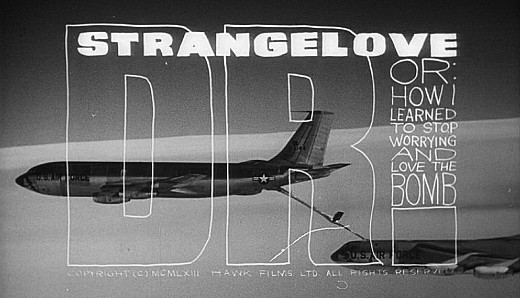A babble bast from the past: "Wendy...Sweetheart...Darling....LIGHT of my LIFE!"

From the wonderful website Lists of Note:
From one of Stanley Kubrick's notebooks comes a list of potential titles for the 1964 movie that was eventually named, Dr. Strangelove or: How I Learned to Stop Worrying and Love the Bomb. Interestingly, that particular title doesn't feature on this page.
- Doctor Doomsday
- Don't Knock the Bomb
- Dr. Doomsday and his Nuclear Wiseman
- Dr. Doomsday Meets Ingrid Strangelove
- Dr. Doomsday or: How to Start World War III Without Even Trying
- Dr. Strangelove's Bomb
- Dr. Strangelove's Secret Uses of Uranus
- My Bomb, Your Bomb
- Save The Bomb
- Strangelove: Nuclear Wiseman
- The Bomb and Dr. Strangelove or: How to be Afraid 24hrs a Day
- The Bomb of Bombs
- The Doomsday Machine
- The Passion of Dr. Strangelove
- Wonderful Bomb





